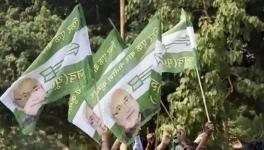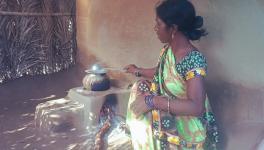Bihar: Musahar Women Take to Agriculture Long Before Call for ‘Atmanirbharta’
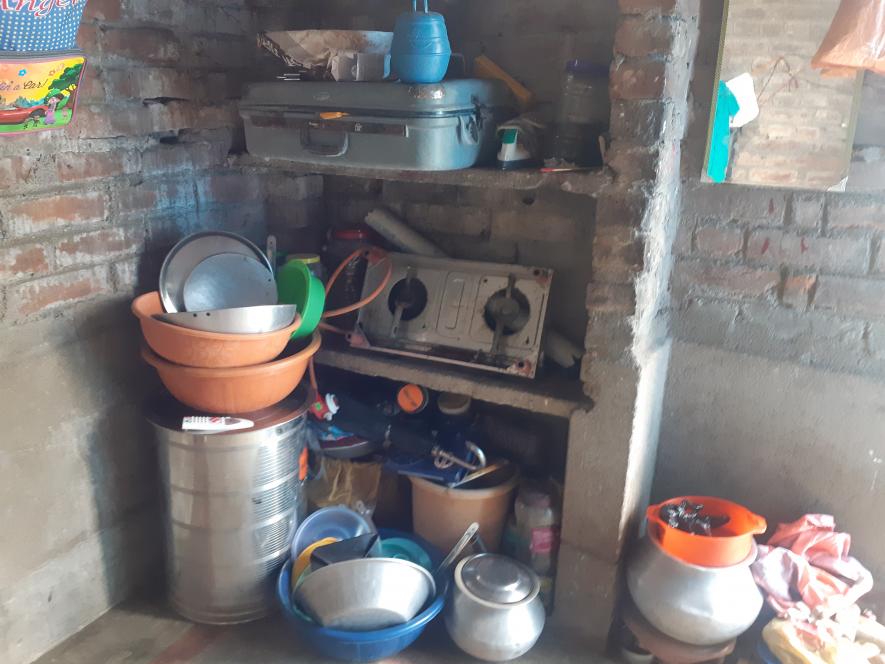
Parsa (Patna): Vidya Devi, the 25-year-old mother of four children, strongly opposes anyone calling her a housewife. She prefers to be addressed as a woman farmer.
Devi, who belongs to the Musahar community, one known for hunting and surviving on rats, is at the bottom of the hundreds of Dalit sub-castes in India. She is also one of Musahar women farmers, who have inspired hundreds of other women to pursue farming as a full time profession and contribute to the prosperity of their family.
“I have seen my father and the elders in my family struggle for food, hunt rats and do daily-wage labour where they were underpaid and faced discrimination from society. I do not want my kids to suffer,” she told NewsClick.
“We have seen struggle all of our life. I started farming only because the money my husband made from daily-wage jobs was not enough, and a large chunk of his earning was spent in liquor,” she said. Vidya Devi added that the idea of farming came about after a successful experiment with kitchen gardening on the advice of a social activist five years ago. “On realising the potential in farming, I sought help to lease a small portion of land and begin farming,” she said.
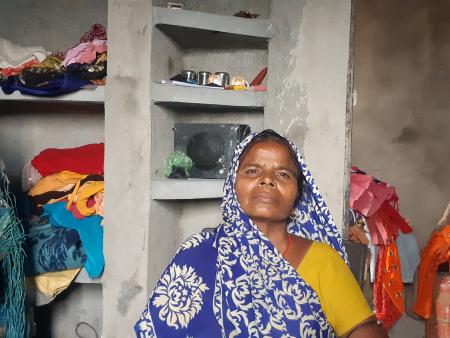
With the help of a non-profit, ten women from the village were able to lease a small portion of land at a cumulative cost of Rs 30,000, They then began farming on the land. “The first crop that was sown on the land was paddy and the output was very good, beyond our expectations. The next year we took more land on lease, that too without the help of any non profit,” she added.
Importance of Education
Sanju Devi, another farmer in her early thirties, is a mother to four children who study in a private boarding school outside Patna. “All our lives we have seen how people from our community have been treated. We have faced enough and I will not let my kids face the same things,” she said.
“One of my children died a few years ago and could not study, but I am getting the rest of the three educated in a boarding school. I spend Rs 12,000 on their education excluding other expenses. I did not call them home during the lockdown because I did not want them to see the life here. I only want them to study and concentrate on their career and lives,” she said, adding that farming “turned out to be a boon for us. We started by sowing paddy and later realised that the soil in our area was fit for onions – then we started growing onions,” she added.
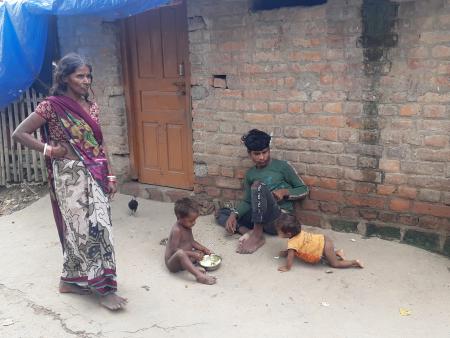
Sanju said that before the lockdown was imposed, she grew onions worth about Rs 2 lakh. After it came into place, she could sell onions worth only Rs 18,000.
“The cost of production for onions in one bigha of land is about Rs 70,000. We have made a lot of profit through farming in the past but we suffered a loss during the lockdown. We are eating up our savings and try to balance it out in the next sowing season. Without our savings our kids would have starved and been ousted from the school,” said Sanju.
According to Sudha Verghese, Padma Shri awardee and social activist, over 400 Musahar women in Patna have started practising farming and their business is flourishing.
“The Mushahars are the lowest rung of the Dalits. They do not own land and are among the most backward communities in India. However, if women are now owning land and inspiring others then it is a big deal. These are small things which bring about change in the society. In five years about 400 women in Patna have become farmers or agricultural entrepreneurs. If given some support by the stakeholders they can do wonders and help in the upliftment of their society,” Verghese told NewsClick.
According to Oxfam (2013), around 80% of farm work is undertaken by women in India. However, they own only about 13% of land. Recent statistics released by the University of Maryland and the National Council of Applied Economic Research (NCAER, 2018) stated that women constitute over 42% of the agricultural labour force in India, but own less than two percent of farmland.
According to the interim report of Mahadalit commission, Bihar has a population of about 2.2 million Musahars.
The landless Dalits, derogatorily known as rat eaters, are one of India’s most marginalised communities. Upper-caste hindus still consider them untouchables. In Bihar, 96.3% of Musahars are landless and 92.5% work as farm labourers. The figures have not changed much since the 1980s. Literacy is 9.8%, the lowest among Dalits in the country. Hardly one percent of Musahar women are literate.
Phulwa Devi, in her late 50’s, says that farming gives the women “dignity and respect. All our life we have faced discrimination. Even the wages we used to get were not equal to the wages of people from the upper caste. Many times we have received half a kg of rice or wheat as wages and not money. This is the kind of discrimination our community has faced since ages and we do not want this to grow further. Our kids and community deserves respect and now we will take it.”
Get the latest reports & analysis with people's perspective on Protests, movements & deep analytical videos, discussions of the current affairs in your Telegram app. Subscribe to NewsClick's Telegram channel & get Real-Time updates on stories, as they get published on our website.













